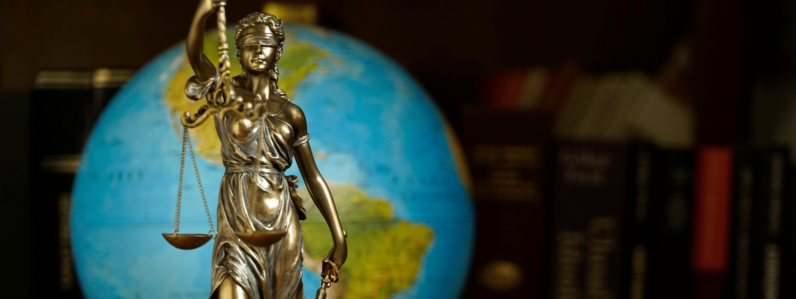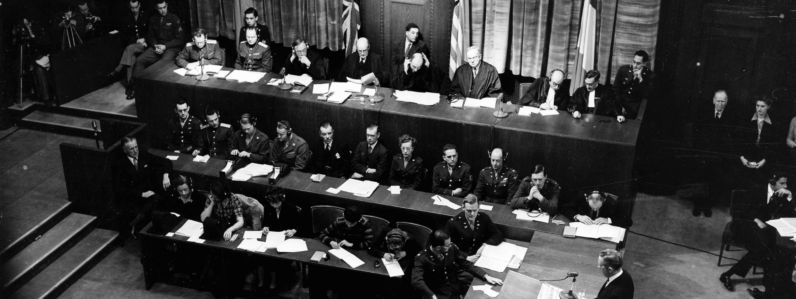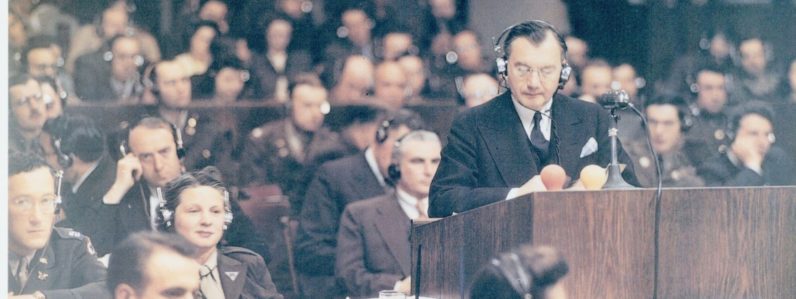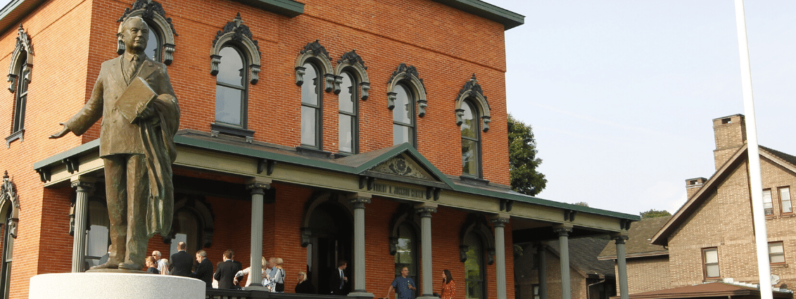ADVOCACY AS A SPECIALIZED CAREER
BY ROBERT H.JACKSON
PROPOSALS of higher educational qualifications for admission to the bar bring out a sharp divergence of opinion between the metropolitan bar and sections of the upstate bar. The country lawyer does not appreciate the gravity of the evils that have developed practice the city bar cannot understand the rural lawyer's resistance to higher standards.
I am impressed that each may be right from the viewpoint of the community that he represents. It is questionable whether one standard of education can much longer be applied to the entire profession, regardless of location and type of practice. It seems an impossible task to keep the standards high enough to assure the profession its traditional leadership in the exacting environment of America's most progressive city and still keep professional services within the reach of men in the humble walks of
rural life. Yet, to span this vast guU, not failing at either extreme, is the task of the New York State Bar.
There is an obvious relation of cause and effect, between the educational requirement and the charge the lawyer must make for his serIftightening of the legal monopoly may foreclose some classes from legal services, how much education of the bar produces the best results for society? Can it not be overdone? We must approach the problem from the viewpoint of society, not from that of the convenience of a class. As the advocates of increased years of study cite the medical profession, let us examine that profession's return to society for its increased investment.
During the past half century, the standards of medical education have steadily increased and the number of doctors in the country, villages and smaller cities has as steadily decreased. The long educational discipline leaves little taste or adaptability for country practice; and the semi-rural districts cannot pay the overhead occasioned by a seven year medical course. The country doctor who "read" medicine and learned by making the rounds with an older man was probably no great credit to a learned profession, but he was adequate to the simple needs of his patients. His type has been outlawed by the "higher standards" and the country has no family doctor, except chiropractors, mechano·therapists and unclassified correspondence school healers.
The legal profession is undergojng a similar evolution. That dangerous jury adversary, who qualified by "reading" law evenings, surveyed a little, held a few local offices, and knew the life and habits of thought of his neighbor clients, among whom he had his origin and his destiny, is also outlawed. His preparation was rather casual hut about all his neighbors could pay for. His work is now being done 'by laymen or justices of the
peace, whose only qualification is the accident of election and an unintelligent reading of "Every Man his own Lawyer." Worse still, his erstwhile clients are leaving to oral understanding leases and agreements that should be written, or are failing to make wills or are making them with the help of home talent.
Hence it is, that the country bar sees a certain menace in the effort to impose upon all the bar those standards necessary to metropolitan practice. The fact is that no single standard of education is adapted to all of the profession; that our present standards are high enough or perhaps too high for some parts of it, and that they are far too low for others, and that in neither rank is education a substitute for character. The time has about arrived when in the interests of both society and the profession, legal practice must he subdivided and each section educated for the limited function it is to perform for society.
There are many legal chores that can be done by talent of the second order and a moderate amount of training. There is a scholarly subtiJi!Y which (dulls common understanding and) may even unfit one for some classes of work. There are collections, title searching and conveyancing, many problems of taxation, many aspects of bankrupts' and decedents' estates administration, and other "law business," which are practical matters. I doubt greatly if a scholarly knowledge of feudal tenures is necessary to safe conveyancing under our real property act and I should 'never entrust drawing a farm lease on shares to some of the scholars who adorn the bench and lead the bar.
Might not certain types of practice well be confided to men of more limited qualifications? Perhaps something resembling the French Notarial system might be introduced, by which a class of notaries would be permitted to handle business that is somewhat beyond the layman, but does not require the highest order of scholarship. Such a class might be qualified by brief courses of school study or perhaps by apprenticeship.
A specialist has been contemptuously defined as "one who learns more and more about less and less." But no one can observe even casually the actual workings of the British system without a conviction that the trial of cases can be handled by a highly trained professional body, giving exclusive attention to it, with better results to society than our system is yielding. Specialized division of the professionist, solicitor or office lawyer, and barrister or trial lawyer is most natural, and such an evolution is already apparent, particularly in larger centers.
No one, I take it, would advocate the arbitrary forcing of the British system upon the American profession. The English profession owes much to the large percentage of concentration of the bar in one city, to the high minded rivalry between its law societies and to its aristocratic origin. The results of such evolution cannot be transferred to our widely different conditions by fiat.
The sole lesson that I would take from Britain at this time is that longer study and special preparation should be required to admit one to try causes or appear in court, than should be required to qualify an "office lawyer" or solicitor.
The necessary qualifications of a counsellor differ from those of the advocate in talent, temperament and training. The business counsellor, or office lawyer, should of course, know in general the courts and their relative authority and an outline of procedure and the fundamentals of evidence. But the subjects of evidence and procedure do not assume such importance in his practice that one-half of his entrance examinations should be devoted to it, nor any large portion of his time of preparation.
It is not in the field and function of the counsellor-at-law that complaints arise or the profession is failing. The greater number of abuses are connected with litigation, either in solicitation of employment, unscrupulous trial methods or downright inefficiency and it is, therefore, suggested that the present standards are, perhaps, adequate for counsellors-at-law, but that some radical measures should be taken with reference to trial lawyers.
Many of the abuses of the bar arise from the inadequate education of the trial bar and its failure to appreciate its true relation to the administration of justice. Compared with the dignity, simplicity and sincerity of a British trial, the tone of the average American trial is decidedly low. Some of wide publicity resemble in dignity and intellectual effort the hog calling contests that are popular at western county fairs. Preparation for trial is sometimes so inadequate that it borders upon mal-practice and would not occur if the future of the lawyer depended solely upon trial work, now regarded as a mere side line. Our system of "trial and error" is a serious commentary either upon the state of the law or the state of our lawyers, particularly as a great proportion of appeals and new trials come from errors in evidence or procedure.
The problem of legal education should be concerned with lifting the trial bar from a position of secondary importance for the great mass of lawyers to a position of first importance to relatively few lawyers who pursue it, not as an incident, but as a career. In such a position it would require the highest talent and the broadest culture.
The lawyer, who tries cases and argues appeals, should have a more thorough knowledge of substantive law than a counsellor. It is his duty, not merely to apply the law as it is, but he is to guide in the development of the law as it will be and he should know the history of the law he is applying and how it compares with the law of other peoples.
He must specialize in procedure and evidence and in the ethics or manners, if you will, of court before he should be privileged to appear at the trial or appellate bar; he should either by school or by apprenticeship learn the art of proof as well as the science of evidence.
It is a weakness of our system that one may master the theory of evidence and still be unable quickly and simply to prove the signature on a promissory note. Evidence is taught too largely in the negative. The art of trying lawsuits quickly and fairly requires a constructive mind and affirmative program of proof.
Our courses and textbooks on evidence provide a student with a great variety of objections, suggestions of errors, and methods of obstruction, but efforts to teach how proof should he made are few. There is Osborn's “Problems of Proof” which is too limited in scope to fill the needs of a law student. · "Abbott's Proof of Facts" offers some help and Dean Wigmore has a rather ponderous collection examples in his "Principles of Judicial Proof." But I know of no systematic, complete, adequate and practical text on the subject and the first time a young lawyer is required to qualify an expert or ask a hypothetical question, or prove a disputed document or establish an account stated, he is as unprepared as if he were to perform an operation for appendicitis. He can get little help from the decisions, for the courts usually write to point out the errors below, and pass on noted the approved work of the trial. Thus it is only the errors of the profession that are preserved for the instruction of our professional posterity.
The result of thus arming the young lawyer with a head full of objections and failing to equip him in constructive practice is that he begins trial work not knowing how to prove a simple, obvious and almost admitted thing. So one lawyer Bounders, while the other objects, one hoping to get some helpful fact before the jury and the other hoping to get some good objection into the record.
Time of trial courts is taken while records for appellate courts are made of literally thousands of unsound objections to harmless or proper questions, that are never seriously pressed and that could result only from having learned a few objections, without learning when not to use them. The vast number of objections that make up an American trial impeaches the training and good faith of one or both lawyers; for while there will ever be some difference of opinion as to admissibility, a well trained profession should not in each trial make hundreds of unfounded objections or permit its practice to be subject to such numbers of good ones. And the exception! constantly barked at the trial judge without rhyme or reason! It has been so universally abused as to have lost all significance and should be abolished in the interest of suppression of unnecessary noises.
The negative character of the trial equipment of the young lawyer, his adaptability to obstruction rather than construction perhaps explains why after putting in an affirmative case with obvious blundering and embarrassment he jumps up to the far more dangerous work of cross examination with such carefree self-confidence. There are fewer negative rules about it, it is more destructive and fits his training, or more lawless and fits his lack of it.
It would seem that if we should separate the function of counsellor and advocate and in addition to the qualifications of counsellor, imposed special preparation for the advocate, it would have a marked, early and favorable effect upon the work of our courts. It could not fail to result in better qualified judges, for the bench will but reflect qualifications of the profession from which it is selected. It would result in a smaller trial bar, closer acquaintance, more accurate knowledge, better spirit. Conduct of litigation would be a career and not a mere interruption of more profitable office work.
Moreover, trial employment would come largely from counsellors who would be in touch with the sources of litigation. The advocate who appeals to such sources for retainers is likely to maintain higher professional standards than one who appeals to the public, for he knows that such standards will be better appreciated and accurately judged by the profession. Many manoeuvres to please bitter clients or to attract attention from reporters would not occur if the chief channel of employment were a profession that discountenanced such tactics. We believe that by a division of the profession, perjury would be reduced, congestion of our calendars largely eliminated, trials simplified, appeals lessened, and the judicial process would become a search for truth instead of a game of chance.
Any program for reform or separation of functions must avoid attempting too much. The English system has many refinements that can never be adopted here and is sustained by an unwritten supplement of tradition that we cannot depend upon to aid the system here.
In attempting to apply to all the bar advanced requirements which only a part of the bar needs, the danger of denying counsel to disadvantaged localities or classes creates an unspoken but effective opposition to a reform that would otherwise be welcomed.
The division can be effected by creating either a sub-professional group of notaries or a super-profession of advocates, or both. The one should qualify for limited privileges with considerably reduced preparation, the other for greater responsibilities by a considerably increased preparation. The subject deserves early and thorough study by our bar associations.
The feeling grows with cumulative support that the legal profession is not meeting its responsibilities, is not maintaining its leadership, that its house is not in order. Whole fields of work are being withdrawn from the lawyer, a course that proceeds from want of confidence in us or in our methods. The federal Treasury Department and Board of Tax Appeals do not recognize us without special admission which is conferred also on accountants. Workmen's Compensation Laws were a rebuke to our way of dealing with employee cases and now it is suggested from sources within the profession that automobile negligence cases he removed from court to arbitration, in order to free unfortunates from the abuses, delay, expense and chaotic uncertainty to which we, as lawyers and judges, subject them. It is time that we order our own house lest it he done by rougher hands. The question to he answered in the next decade is whether we as a profession are incapable of meeting the reasonable demands of our advancing social
order for simple, efficient, and economical adjustment of legal controversy.
Only well considered action can prevent a negative answer.






